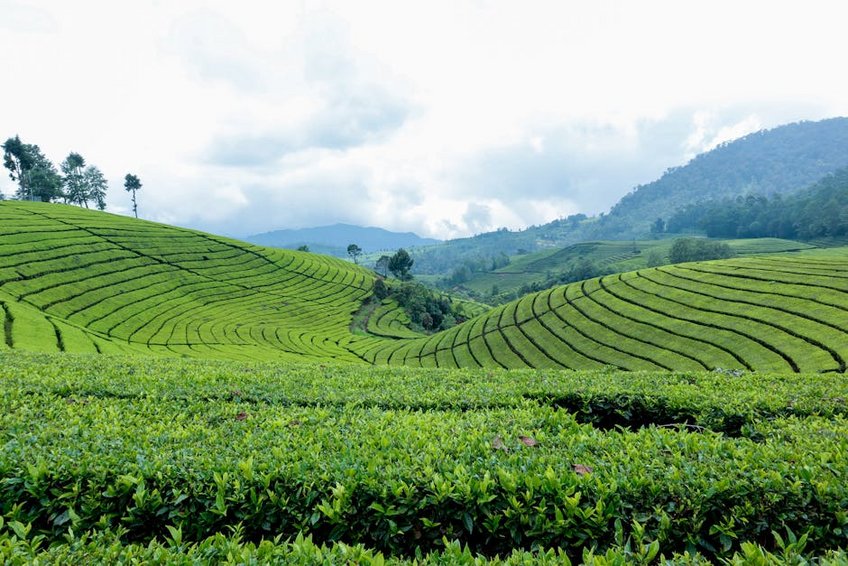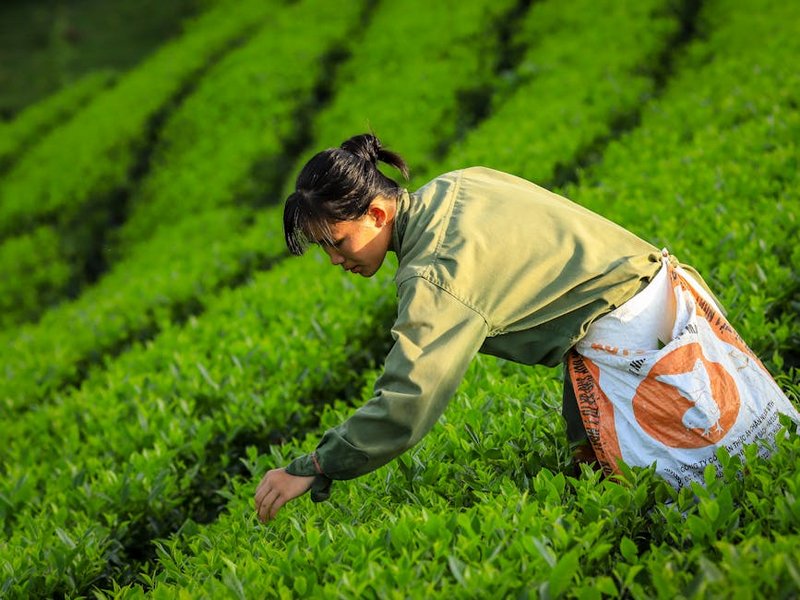Overnight Camp in Paraguayan Tea Fields: A Unique Eco-Adventure
Imagine waking up to the gentle rustle of tea leaves, the crisp morning air filled with the earthy aroma of yerba mate, and panoramic views of endless green plantations stretching toward the horizon. An overnight camp in Paraguayan tea fields offers one of South America’s most unique and immersive travel experiences, combining cultural immersion, agricultural education, and nature connection in a single unforgettable adventure. Paraguay, often overlooked by travelers in favor of its more famous neighbors, hides this incredible opportunity to sleep among the very plants that produce the country’s most famous export. Whether you’re a tea enthusiast, nature lover, or cultural explorer, spending a night in these vast plantations provides insights into traditional farming practices while offering unparalleled stargazing opportunities far from city lights. The experience blends rustic camping comforts with authentic cultural exchange, creating memories that will last long after you’ve finished your last cup of mate.
Overnight Camp in Paraguayan Tea Fields Essential Information
Before embarking on your tea field camping adventure, understanding the basics of Paraguayan yerba mate culture and what to expect from this unique experience is crucial. Paraguay’s tea fields, primarily located in the departments of Itapúa and Alto Paraná, represent centuries of agricultural tradition where families have cultivated yerba mate using methods passed down through generations. The overnight camping experience typically involves staying on working plantations where you’ll witness the entire production process from leaf to cup. Most camps operate from April through September, avoiding the hottest summer months and rainy season, with temperatures ranging from 50-75°F (10-24°C) creating ideal camping conditions. You’ll need to book through specialized tour operators or directly with plantations offering agritourism experiences, as independent camping isn’t usually permitted due to private property regulations and safety considerations.
What Makes Paraguayan Yerba Mate Special
- Paraguayan yerba mate undergoes a different drying process than Argentine or Brazilian varieties, resulting in a smoother, less bitter flavor profile that many prefer
- The traditional consumption method involves drinking tereré (cold-brewed mate) with medicinal herbs, especially during Paraguay’s hot summer months
- Many plantations practice organic farming methods, avoiding pesticides and chemicals that could affect the delicate flavor of the final product
- Budget camping options range from $40-60 USD per night including basic meals and guided plantation tour, typically involving bringing your own tent and sleeping gear
- Mid-range experiences cost $80-120 USD featuring provided equipment, better facilities, and more comprehensive cultural activities like traditional cooking classes
- Luxury glamping setups run $150-250 USD with premium bedding, private facilities, gourmet meals, and personalized guided experiences through the plantations
- Paraguayan Ministry of Tourism official information portal
- Lonely Planet Paraguay travel guide
Cultural Significance and Historical Context
Yerba mate holds profound cultural significance in Paraguay, where it’s not just a beverage but a social ritual that connects people across generations. The Guarani people originally discovered mate’s invigorating properties centuries before European arrival, using it in religious ceremonies and as medicinal treatment. Today, sharing mate represents friendship, hospitality, and community throughout Paraguayan society. The overnight camping experience often includes participation in traditional mate ceremonies where you’ll learn the proper preparation techniques and etiquette. Understanding this cultural context transforms your camping experience from simple accommodation to meaningful cultural exchange, connecting you with traditions that date back to pre-Columbian times while supporting local communities through sustainable tourism.

Overnight Camp in Paraguayan Tea Fields Planning Your Trip
Proper planning ensures your tea field camping experience meets expectations while accommodating your travel style and budget. Most visitors combine this unique overnight experience with broader Paraguay itineraries that might include Asunción, Encarnación’s Jesuit ruins, or the Chaco region. The prime tea-growing region centers around Bella Vista Norte in Itapúa department, approximately 4-5 hours by bus from Asunción or 2 hours from Ciudad del Este. You’ll need to arrange transportation to specific plantations, as public transport doesn’t typically service these rural areas directly. Booking should occur 2-3 months in advance during peak season (June-August) when European and North American travelers flock to South America’s winter destinations. Ensure your travel insurance covers rural camping and agricultural tourism activities, and check visa requirements since Paraguay offers visa-free entry for most Western passport holders for up to 90 days.
Best Time to Visit Paraguayan Tea Fields
The ideal time for overnight camping in Paraguayan tea fields depends largely on your weather preferences and desired activities. April through September offers the most comfortable camping conditions with cooler temperatures (50-75°F/10-24°C) and minimal rainfall, making this the peak season. June and July provide the coolest nights, perfect for campfires and stargazing, though you’ll want warm sleeping gear as temperatures can drop to 50°F (10°C). The harvest season typically runs from October through March, meaning off-season campers might witness picking and processing activities, though higher humidity and occasional rain showers might affect comfort levels. Shoulder months like April and September offer a nice balance with fewer visitors, pleasant temperatures, and lower prices, while still providing excellent camping conditions and cultural experiences.
Budget Planning and Costs
Essential Preparation Checklist
Preparing properly for your overnight camp ensures comfort and enjoyment throughout your tea field experience. Pack layers including warm clothing for cool evenings and lighter options for daytime exploration, plus waterproof gear in case of unexpected showers. Sturdy walking shoes are essential for plantation tours where you’ll traverse uneven terrain. Bring a reusable water bottle to stay hydrated, though most camps provide safe drinking water. Don’t forget insect repellent, sunscreen, and a hat for sun protection during daytime activities. If you’re sensitive to light, consider an eye mask since rural areas lack light pollution and dawn comes early. Most importantly, bring an open mind and curiosity about yerba mate culture – plantation owners appreciate engaged visitors who show genuine interest in their traditions and production methods.
Overnight Camp in Paraguayan Tea Fields Top Attractions and Activities
Beyond the simple pleasure of sleeping among tea plants, your overnight experience includes numerous activities that deepen your understanding of yerba mate culture and Paraguayan rural life. Most plantations offer guided tours explaining the entire production process from seedling to packaging, including opportunities to participate in harvesting during season. You’ll learn to distinguish between different mate varieties and understand what makes Paraguayan yerba unique. Evening activities often include traditional music around campfires, storytelling sessions about mate’s history, and stargazing in some of South America’s least light-polluted skies. Many camps incorporate cooking classes where you’ll prepare typical Paraguayan dishes like sopa paraguaya (cornbread) or chipa (cheese bread) using traditional methods. The experience culminates in mate tasting sessions where you’ll sample different blends and learn proper preparation techniques from experts.
Must-See Highlights During Your Stay
Certain experiences define the overnight tea field camping adventure and shouldn’t be missed during your stay. The sunrise over endless rows of tea plants creates a breathtaking spectacle worth waking early to witness, with mist rising between the bushes as daylight intensifies. Participating in the daily routine of plantation workers, even briefly, provides authentic insight into agricultural life and appreciation for the labor behind each cup of mate. Visiting the processing facilities where leaves are dried, aged, and packaged demonstrates the transformation from raw plant to finished product. The evening tereré ceremony represents a cultural highlight where locals share stories and traditions while preparing the cold-brewed version of mate that Paraguayans prefer during warmer months. Finally, simply walking through the plantations at different times of day reveals changing light, aromas, and atmospheres that photographers and nature lovers will particularly appreciate.
Hidden Gems and Local Favorites
Beyond the standard itinerary, several lesser-known experiences can elevate your tea field camping adventure from memorable to extraordinary. Some plantations offer early morning birdwatching tours where you might spot toucans, parakeets, and other species that inhabit the agricultural landscape. Visiting smaller family-owned operations rather than large commercial plantations often provides more intimate cultural exchanges and personalized attention. Asking about traditional medicinal plants that grow alongside mate bushes reveals another layer of Guarani knowledge that continues influencing Paraguayan culture. Some camps offer horseback riding through the plantations, providing a different perspective on the vastness of the tea fields. For those interested in sustainability, inquiring about organic farming practices and conservation efforts reveals how modern plantations balance production with environmental responsibility in this unique ecosystem.
Overnight Camp in Paraguayan Tea Fields Practical Travel Information
Navigating the practical aspects of your tea field camping experience requires understanding local transportation, accommodation options, and necessary preparations. Most international travelers arrive via Silvio Pettirossi International Airport in Asunción, though some may enter through Foz do Iguaçu in Brazil, just across the border from Ciudad del Este. From these entry points, you’ll need to travel to the tea-growing region, primarily around Bella Vista Norte, which serves as the unofficial capital of Paraguayan yerba mate production. Buses run regularly from Asunción to Encarnación (5-6 hours), from where you can take local transportation to plantations, though many visitors opt for organized transfers through their camping provider. Accommodation ranges from basic campsites where you pitch your own tent to comfortable fixed tents with proper beds and facilities, with most operations falling somewhere between these extremes.
| Accommodation Type | Features and Amenities | Price Range (USD per night) |
|---|---|---|
| Basic Camping | Bring your own tent, shared basic facilities, included meals | $40-60 |
| Standard Package | Provided tent, improved facilities, guided activities | $80-120 |
| Comfort Glamping | Fixed tents with beds, private facilities, enhanced meals | $150-250 |


